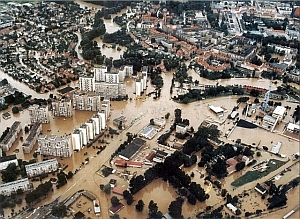Good practices
| ||
 Working Group:Early InquiryCountry:PolandLanguages:PolishAge of students (target group/s):13-14, 15-18Links, resources:http://globe.gridw.pl/projekty/b... Working Group:Early InquiryCountry:PolandLanguages:PolishAge of students (target group/s):13-14, 15-18Links, resources:http://globe.gridw.pl/projekty/b...http://globe.gridw.pl/projekty/b... Contact person information:UNEP/GRID-Warsaw Centre This email address is being protected from spambots. You need JavaScript enabled to view it. The research was conducted on the basis of protocols and experience of GLOBE Program database in cooperation with scientists. The module was prepared in close cooperation with the GLOBE Program teachers, so all educational materials are tested and well adjusted to the reality of Polish school education. Activities realized in this module were divided into four main stages: • Stage I: Choosing and defining characteristics of surface water basin (April – June 2012) • Stage II: Initial field research (September 2012 – February 2013) • Stage III: Regular research of surface water properties (February – June 2013 and September – November 2013) • Stage IV: Research documentation work out – summarizing report (until 15 November 2013)Strong points and opportunities:• Improving students competence in field research; • Measurement equipment used by students is so simple, that it does not require special knowledge; • Students can get to know their region better through activities requiring the cognition of their surroundings (i.e. interviews with inhabitants); • Getting competence of group work – students had to work together as an expert team; • During the lesson, student used various information sources (i.e. historical maps, geographic maps, internet resources, map services, statistic data, interviews with inhabitants, measurements, observations, etc.); • Interdisciplinary measurements (students had to look at the problem from interdisciplinary perspective); • Both teachers and students were able to acquire new experience and new skills by the work with modern technology (ICT tools during lessons); • Students conducted individual field research (learning by experience) and draw conclusions from the gathered information; • During lessons students had to go through all stages of research project, getting new skills, which prepare them to self-sufficient research work. • Workshops for teachers allowed them to get new skills within the scope of using ICT tools during classes.Limitations:• Logistic problems – making measurements (which must take place regularly) often interfere with other lessons, class tests or students trips;Added value with regards to the 3 topics of the MASS project:• Working with Google Earth application – getting skills of using GIS applications; • Appropriate measurement equipment use during class lessons (and beside them); • Students get new practical and research skills (cause and effect thinking); • An enhanced interest in the region; • Aroused curiosity among students, encouraging them to science education;Any prerequisites needed:• Appropriate equipment to make field measurements and observations; • Availability of chemical reagents; • Teacher trained in appropriate way; | ||

